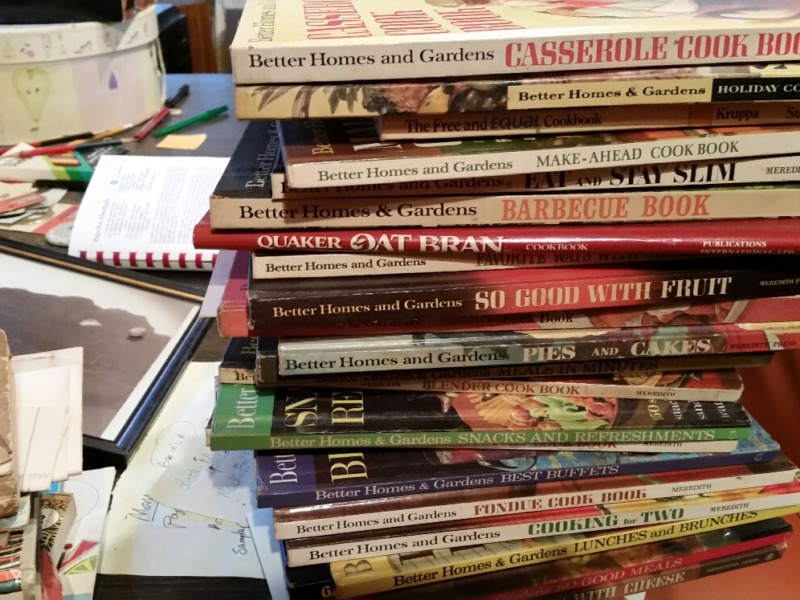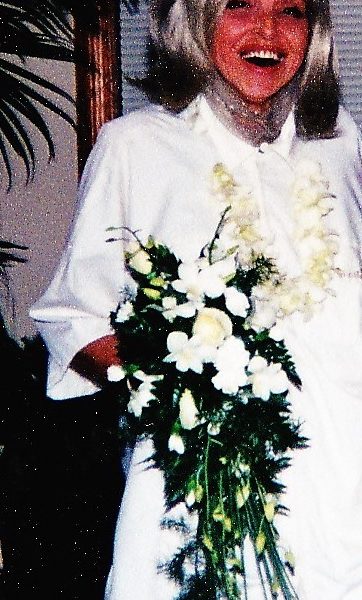I remember the disturbing silence of my mother’s electric lungs. The whoosh of the machine that supplied oxygen to her had been quieted. She lay motionless, her eyes closed, the oxygen tubing pushed away. She’d never breathe again.
The muffled voices of a hospice nurse and my husband droned in the kitchen. A hush settled around me and the shell that had held my mother’s soul. My link to her. As I sat by her bedside in the middle of the living room, it was as if I was alone on a planet, a solitary citizen standing at the beginning of creation. Or, rather, at the end of it. The world as I had known it was gone.
I gazed into her face for long moments and then pulled the sheet over her head. Our long talks, our shared laughs – the beautiful, living noise of the house – would never be again.
Christmas at a July Funeral
It was a steamy southern July, but I decided that we’d sing Silent Night at her funeral. Perhaps an odd selection, but in the whirl of grief, I grasped to remember what songs she loved. At the service, the lyrics were transformed in my mind. Instead of singing of a night in Bethlehem, we sang of the night that my mother died in her sleep, in the home where I’d grown up, with a hired aide.
Peace for her. Pain for me.
From then on, the popular Christmas carol that turned 200 years old this year was forever marked as a song of mourning, a consequence I had not intended. Silent Night was perhaps destined to prick my grief anyway. For those who have lost a loved one, Christmas music often triggers sad nostalgia – or outright incidents of wailing. With carols piped into shopping malls, commandeered for commercials and fitted into festive parties and events, the grieving cannot possibly escape.
What is one to do? I’ve dissolved into tears in front of my stereo at home, stopped cold as music drifted into the grocery aisles, and changed the radio station as though I was braking to avoid a pedestrian in the street. As my grief has aged, though, I’ve found myself turning up the music and singing along. In my head, my mother is singing Silver Bells again, or Merry Christmas to You, commonly subtitled Chestnuts Roasting on an Open Fire. Funny, I never realized how beautiful my mother’s voice was until I couldn’t hear it anymore.
While the figure of 8 million people suffering through the death of someone in their immediate family in a year has been kicked around the Internet, we know the number is huge. Spouses die. Children die. Parents die. Siblings die. Grandparents. Aunts. Uncles. Friends. Boyfriends. Co-workers. Oh my goodness, the list feels endless.
According to the CDC, 2.74 million people died in 2016. For those left behind, there’s always a first Thanksgiving or Christmas or Hanukkah to drag through without the beloved.
Ambushes Everywhere
I used to think that each Christmas I’d feel better and better as the intensity of my grief waned, but sorrow hijacked me two years ago for reasons I couldn’t pinpoint. I then realized the exhaustive unpredictability of grief. It is Hydra, for when I think I am free of one tentacle, I am grasped by another facet of its power. At Christmas, as everyone else is sitting in Santa’s warm, comfortable lap, we whose lives death changed forever fight an unholy monster.
This year (2018), I expected an ambush, though I still didn’t know exactly what form it would take. Wouldn’t you know it, grief rode in on sound waves to the words of I’ll Be Home for Christmas.
Why this song, this year? Because for the first time, I am without the house where I grew up. Where both my parents died. Where I went each Christmas Eve for nine years to plunge head long into my grief. I’d switch on my parents’ turntable and play their old Christmas records as I sifted through every sheet and thread of their belongings. And I felt them near me. It was my way to have Christmas with them.
I sold the house this past spring. I lost my safe place, my refuge. I’m sorry, Bing Crosby and Karen Carpenter and all you other recording artists, wherever you are, I cannot go home for Christmas.
I joined in the singing as the song as it played on the radio, however. I don’t begrudge anyone anymore of a happy Christmas. I know my grief is invisible to many shoppers and partiers. I’d like that to change. I’d like people to acknowledge and understand the depth of loss, especially during the holidays, of people like me. As I hope people learn not to impose joyful observances on the unwilling, I also have learned not to impose my grief on people without necessity or invitation.
I will not chase away the carolers. I will endure the ambush. As they sing, I will embrace grief like a wrestler seizes his opponent in the ring. Because if I ran, grief would only chase me.
At Christmas, embracing grief is especially difficult. I’m supposed to be over the moon.
Getting Help
GriefShare, a video-based, nondenominational recovery and support program that’s swept the nation, acknowledges that the holidays are particularly difficult for anyone mourning a loved one’s death. It puts on two-hour “Surviving the Holidays” seminars across the country. The program includes tips on surviving social events, handling traditions and facing the variety of emotions. To find a seminar in your area, visit www.griefshare.com/holidays and plug in your city or zip code.
I completed the full 13-week GriefShare program going into the Christmas of 2015, when one of my takeaways was that regret slows healing. My father, the musician in the family, had been dead nearly 10 years. My mother had been dead for more than six.
O Holy Night is my favorite Christmas carol. It’s majestic. Mom asked Dad once that he and I sing it together for her someday. Someday never came. And so the beauty of this song is mixed with a little bit of regret. Life with loss is like this – Christmas is like this – a mixture of beauty and of sorrow. Of wonderful memories and of painful deprivation. Deprived of the person or people who made Christmas what it was for so many years.
Hold Onto the Light
As my tenth Christmas without a living parent approaches, I stare before bed at their ornaments on my tree. I put up Christmas cards in the tradition of my father. I prepare to cook my mother’s dishes for the feast. I follow my new tradition, church with my husband. Even after all these years, I know I’m not immune to Silent Night. We will sing it at our candlelight service Christmas Eve and again tears will roll down my face in big blobs.
If I allowed them, the puddles would choke out my song and put out the light in my hand. Instead, I sing on. I sing for my mom. I sing in her memory. I demonstrate that it’s OK to cry. To admit Christmas hurts sometimes – but not every moment. As good memories overcome the number of regrets and the pain of loss, I will sing. In this longest night of my life, I will sing.
What carol brings happy memories? Why?
Copyright © 2018 by Toni Lepeska. All rights reserved. www.tonilepeska.com






Leave a Reply